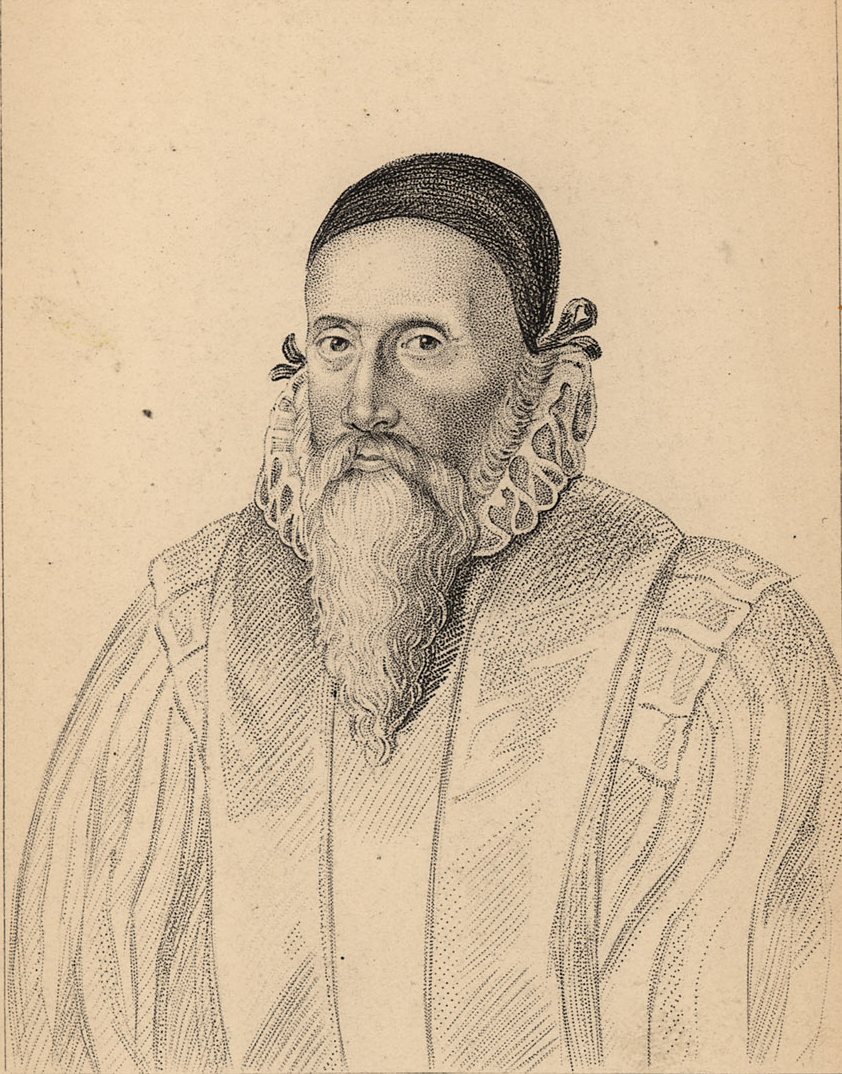John Dee (13 July 1527–1608 or 1609) was a Welsh mathematician, astronomer, astrologer, occultist, navigator, imperialist and consultant to Queen Elizabeth I. He devoted much of his life to the study of alchemy, divination and Hermetic philosophy.
Dee straddled the worlds of science and magic just as they were becoming distinguishable. One of the most learned men of his age, he had been invited to lecture on advanced algebra at the University of Paris while still in his early twenties. Dee was an ardent promoter of mathematics and a respected astronomer, as well as a leading expert in navigation, having trained many of those who would conduct England’s voyages of discovery.
Dee sought to contact angels through the use of a “scryer” or crystal-gazer, who would act as an intermediary between Dee and the angels. Dee’s first attempts were not satisfactory, but, in 1582, he met Edward Kelley who impressed him greatly with his abilities. Dee took Kelley into his service and began to devote all his energies to his supernatural pursuits. These “spiritual conferences” or “actions” were conducted with an air of intense Christian piety, always after periods of purification, prayer and fasting. Dee was convinced of the benefits they could bring to mankind. (The character of Kelley is harder to assess: some have concluded that he acted with complete cynicism, but delusion or self-deception are not out of the question. Kelley’s “output” is remarkable for its sheer mass, its intricacy and its vividness). Dee maintained that the angels laboriously dictated several books to him this way, some in a special angelic or Enochian language.
Dee and Kelley began a nomadic life in Central Europe, but they continued their spiritual conferences, which Dee recorded meticulously. He had audiences with Emperor Rudolf II in Prague Castle. During a spiritual conference in Bohemia, in 1587, Kelley told Dee that the angel Uriel had ordered that the two men should share their wives. Kelley, who by that time was becoming a prominent alchemist and was much more sought-after than Dee, may have wished to use this as a way to end the spiritual conferences. The order caused Dee great anguish, but he did not doubt its genuineness and apparently allowed it to go forward, but broke off the conferences immediately afterwards and did not see Kelley again. Dee returned to England in 1589.

